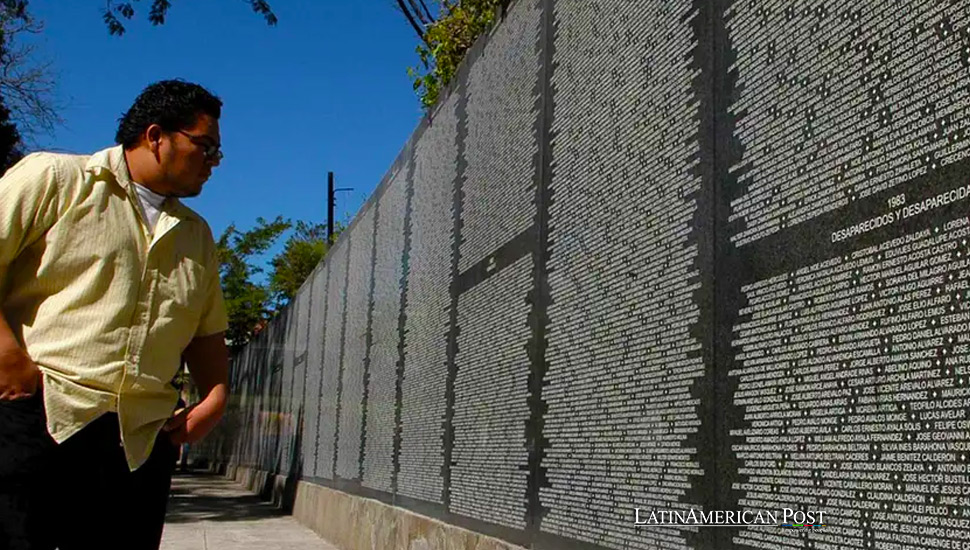El Salvador’s Path to Peace: Crafting a Law for War Victims

The UN High Commissioner for Human Rights stresses the importance for El Salvador to progress in creating a reparations law for civil war victims, highlighting the necessity for victim involvement and alignment with global human rights standards, amid ongoing legal and political challenges.
Prioritize Reparations for Civil War Victims
In a significant appeal to El Salvador, the United Nations High Commissioner for Human Rights (OHCHR) has emphasized the urgent need for the nation to advance in formulating a law dedicated to the reparations for victims of its brutal civil war (1980-1992). This call to action underscores a broader regional struggle in Latin America, where nations grapple with the historical shadows of conflicts and dictatorships, striving to reconcile a turbulent past with the demands of justice and human dignity.
El Salvador’s journey towards justice and reconciliation has been complex and protracted. The civil war, a conflict characterized by intense violence and human rights abuses, ended three decades ago but left a legacy of pain and unresolved grievances. The OHCHR’s reminder comes against a backdrop of legal and political inertia, highlighting the need for a transitional justice law that not only acknowledges the atrocities committed but also actively involves the victims in the healing process.
Despite the Constitutional Court’s 2016 ruling that annulled a 1993 amnesty law and ordered the creation of a reparations law, progress has been limited. The arrival of the Nuevas Ideas (NI) party’s majority in the legislature has seen proposals from victim organizations shelved, with no significant advancements on the issue since 2021. The legislative process faced a setback when President Nayib Bukele vetoed the Special Law of Transitional Justice, Reparation, and National Reconciliation, passed by the opposition-majority legislature in February 2020.
Human rights organizations argue that the state of impunity persisting over 30 years post-conflict represents an unaddressed debt by successive governments. The OHCHR’s statement is a critical reminder of this ongoing responsibility, stressing that El Salvador must ensure justice and dignity for victims in line with international standards.
Confronting the Legacy of Conflict
The civil war years in El Salvador were marked by fierce fighting between the Farabundo Martí National Liberation Front (FMLN) and the U.S.-supported Salvadoran army, and this period resulted in approximately 75,000 deaths and 8,000 disappearances, embedding deep scars in the national consciousness. Post-war efforts to address these atrocities have been hampered by political dynamics and the contentious legacy of the amnesty law, which shielded war criminals from prosecution for decades.
Following the amnesty’s nullification, some judicial actions were reinitiated, reopening cases such as the 1989 Jesuit priests’ massacre, the 1981 El Mozote massacre, and the 1980 assassination of Archbishop Óscar Arnulfo Romero. These cases, emblematic of the war’s horrors, have gradually rekindled the pursuit of truth and justice, although many victims remain waiting for full accountability and reparations.
El Salvador’s struggle with its past is a reflection of a larger narrative in Latin America, where nations are confronting the remnants of violence and authoritarianism. From Argentina’s trials of junta leaders to Chile’s ongoing reckoning with Pinochet’s dictatorship and Colombia’s intricate peace process with the FARC, the region is engaged in a delicate balancing act of addressing historical injustices while fostering national reconciliation.
The OHCHR’s emphasis on active victim involvement in crafting a transitional justice law is pivotal in this context. It aligns with the broader Latin American experience, where the most effective reconciliation efforts have been those that prioritize the voices and rights of victims. The process seeks to mend the legal and moral fabric torn by conflict and restore the societal bonds essential for sustainable peace.
The OHCHR’s commitment to supporting El Salvador with the necessary tools to adhere to transitional justice standards signifies an international recognition of the country’s needs and the global importance of addressing such historical injustices. This support is crucial in navigating the complex interplay of memory, justice, and healing that defines transitional justice efforts.
Path Forward and Regional Implications
The case of El Salvador, with its delayed justice and reconciliation processes, serves as a critical study of the efficacy and challenges of transitional justice in a post-conflict setting. The nation’s experience underscores the importance of a comprehensive approach that includes judicial measures, truth-telling, reparations, and systemic reforms to prevent the recurrence of such atrocities.
Establishing a robust and victim-centered transitional justice law in El Salvador could provide a blueprint for other countries facing similar post-conflict challenges. It embodies the principle that true peace is not merely the absence of conflict but the presence of justice, accountability, and respect for human rights.
As El Salvador moves forward, the international community’s role, exemplified by the OHCHR’s engagement, remains a cornerstone of support and oversight, ensuring that the nation’s journey toward reconciliation and justice remains aligned with global human rights standards. The path to healing and reconciliation is fraught with challenges. Still, with sustained effort and international collaboration, El Salvador can aspire to achieve a comprehensive and inclusive process that addresses the wounds of its past.
Also read: El Salvador’s Historic Trial Against MS-13 as a Decade of Crimes is Scrutinized
El Salvador’s progress will be closely watched by neighboring countries in Latin America, many of which are dealing with their own legacies of conflict and dictatorship. The region has a shared history of grappling with the question of achieving justice for past atrocities while moving toward a peaceful and democratic future. El Salvador’s efforts to enact a law of reparations for civil war victims can thus serve as an important precedent in the region, offering lessons and inspiration for similar initiatives elsewhere.
Moreover, the process in El Salvador highlights the critical role of civil society, including victims’ groups, human rights organizations, and the broader community, in pushing for truth, justice, and reparations. Their active participation ensures that the transitional justice process is grounded in the realities and needs of those most affected by the conflict.
The UN’s reminder to El Salvador to advance in crafting a law for war victims is more than a bureaucratic prompt; it is a call to action for a country, and indeed a region, to confront its past openly and honestly. The journey toward establishing a comprehensive transitional justice framework in El Salvador symbolizes a broader quest in Latin America for peace, justice, and reconciliation. As the nation strives to fulfill this complex mandate, it not only seeks to redress the grievances of its past but also contributes to the collective memory and healing of a region marked by similar scars of conflict and repression.





